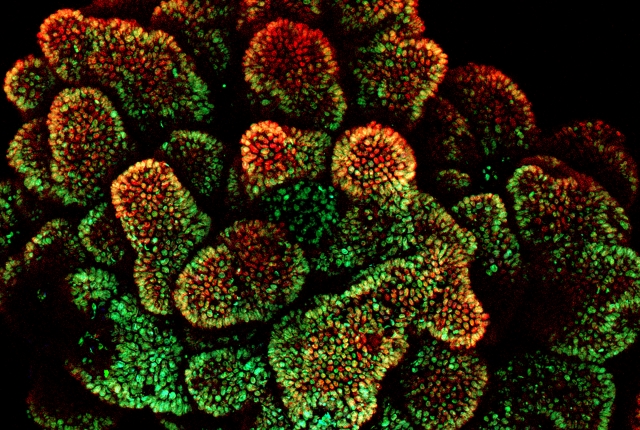Nature Med: Stem Cells for Colonic Cancer Precision, Modeling Targeted Drug Testing Platforms
It is a challenge to create an effective test platform for human colonic cancer. Typically, researchers take advantage of the mouse model to study these diseases, however, colonic Cancer do not usually happen on mice which brings more difficulties for this study. A new study released on Journal of Nature Medicine on June 19 brought some good news for the construction of a human colonic cancer disease model and the development of a drug testing platform. Scientists have developed the first stem cell-derived human colon cancer "disease model in petri dishes", which being used to identify targeted drugs for common genetic diseases with great importance for the personalized treatment of human colonic diseases. Colonic organoids derived from pluripotent stem cells - the ideal human colonic disease model Researchers have experimented with a new and effective method to build the model of human colonic disease - obtaining colon organs with pluripotent stem cells (iPSCs), which induce pluripotent stem cells from two hereditary colorectal diseases - familial adenomatous polyposis (FAP) in the skins of patients. The WNT signaling pathway of these patients has regulated germline mutations, and colorectal cells already formed large amounts of polyps that may eventually develop colonic cancer. Researchers developed the 3D structure of the colon organ with the induction of pluripotent stem cells. Through extensive gene and immunohistochemical analysis, they confirmed that the structure can represent the colon tissue system and has a significant biological characteristics, including stem cells, precursor cells, differentiated cells of the expected lineage etc. With genomic DNA sequencing, gene expression profiling and other methods of verification, they found that the structure cultures a large number of colon cells with 2 different FAP genetic mutation, one of which will lead FAP cells to grow into cancer cells. This feature proves that the structural model can be used to target drug testing. Colonic organoids derived from pluripotent stem cells - Great platform for targeted drug testing Colonic organoids derived from pluripotent stem cells has a strong activity of WNT and epithelial cell proliferation, which also being used by the researchers as a drug test model. In the drug test, they also used stem cells without FAP gene mutations to create colon organs as the control group. They found that, XAV939 and rapamycin can significantly inhibited the proliferation of FAP colon organs, but also significantly reduced the growth of FAP-free mutants, which could endanger healthy colon tissue and accordingly limit the application of colonic disease therapy. But another drug - geneticin, is effective against abnormal WNT activity by reducing the overactivation of WNT and blocking the proliferation of colon epithelial cells in the disease model, also will restore the normal growth of abnormal organs in the patient. Furthermore, that is healthy to the control cells. This shows the great potential of this candidate drug on the personalized treatment of colonic cancer. Conclusion Researchers believe that they have developed a powerful strategy to obtain human colon organs. The 3D-differentiation strategy was applied to the induction of pluripotent stem cells, and the "disease model in the culture dish" was developed for the WNT signaling pathway for targeted colon cancer testing. In addition, they use the patient's specific cells to predict which drugs may be the most effective before the treatment.


Your email address will not be published. Required fields are marked *